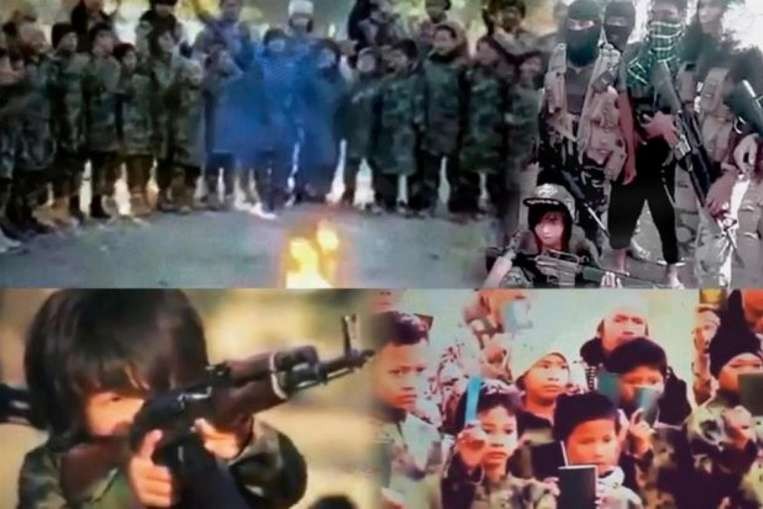Popular Reads
Top Results
Can't find what you're looking for?
View all search resultsPopular Reads
Top Results
Can't find what you're looking for?
View all search resultsEDITORIAL: Too young to die
Hatf Saiful Rasul, who was killed in an airstrike at the age of 12, might be just the tip of an iceberg of the phenomenon of Indonesian child soldiers, or at least those who have been groomed and trained to become future terrorists.
Change text size
Gift Premium Articles
to Anyone
O
nly recently the media reported the death of an Indonesian child while fighting for the Islamic State (IS) terrorist group on a Syrian battlefield last year. The manner of his death is saddening enough, but his recruitment as a combatant for whatever reason is even more worrying, partly because dozens of his peers have joined their parents to pursue a dream life under a caliphate in Syria and Iraq, which later turned out to be a lie according to some returnees.
Hatf Saiful Rasul, who was killed in an airstrike at the age of 12, might be just the tip of an iceberg of the phenomenon of Indonesian child soldiers, or at least those who have been groomed and trained to become future terrorists.
Following the revelation of the young boy’s demise by his father, a convicted terrorist who proudly called his son a “merry little mujahid,” the government immediately moved to close down the Ibnu Mas’ud Islamic boarding school in the West Java regency of Bogor, where Hatf and several other children had studied before leaving for Syria.
Head of the National Counterterrorism Agency (BNPT) Suhardi Alius said on Tuesday that, quite apart from not having a permit, the boarding school had radicalized its students.
Children are very vulnerable and easy prey to indoctrination, including extremism and allegiance to IS, as in the case of Hatf. Both the security and education authorities have been aware of the spread of such teachings and they have stepped up monitoring of Islamic boarding schools, especially their curricula, with the full support of mainstream Islamic organizations like Nahdlatul Ulama (NU).
One of the reasons why NU has resisted the full-day school program, according to some of the group’s leaders, is to protect their children from exposure to unwanted values like extremism if they stop attending after-school Islamic religion classes in NU-affiliated madrassas.
But how many officials will be required to keep as many boarding schools as possible under supervision 24 hours a day? Indonesia is too large to cover, even Java as the Ibnu Mas’ud case has shown. The schools may operate in areas where supervision is lacking or the local community does not care.
The full-day school controversy has also sparked doubts over whether formal education is the most credible way to curb extremism. The government prescribed the full-day school program to facilitate national character-building courses for students.
No doubt character building is a must, but formalizing it does not necessarily work. We could not agree more that for children character building starts at an early age and, hence, at home. Little Hatf would not have been keen to go on jihad without his father instilling in him the religious duty to do so. Aceh teenager Akbar Maulana in the Jihad Selfie documentary movie would have proceeded to join IS had he not felt the love of his parents back home.
It remains a question, however, whether we are ready to offer a home to the children of returning IS sympathizers and convicted terrorists so as to help them grow and live a fulfilling life.










